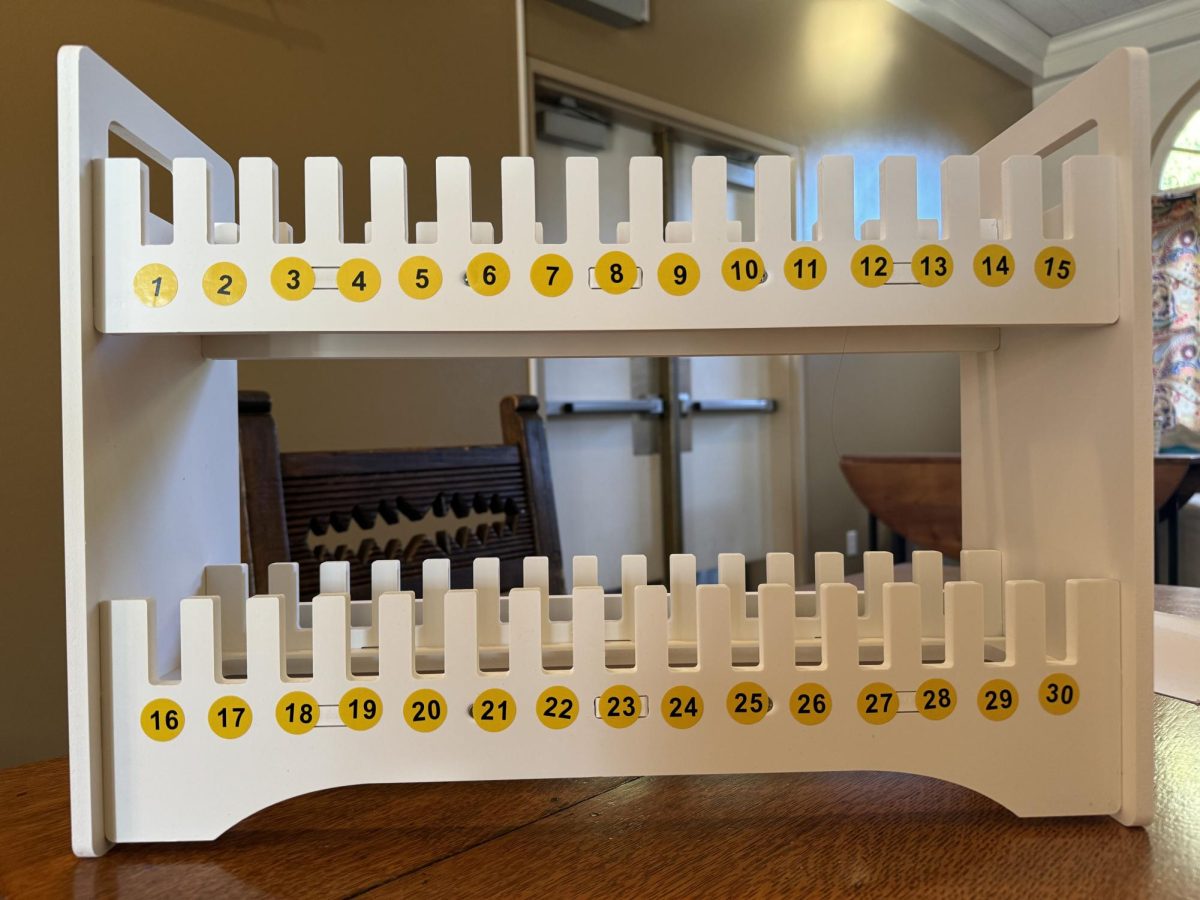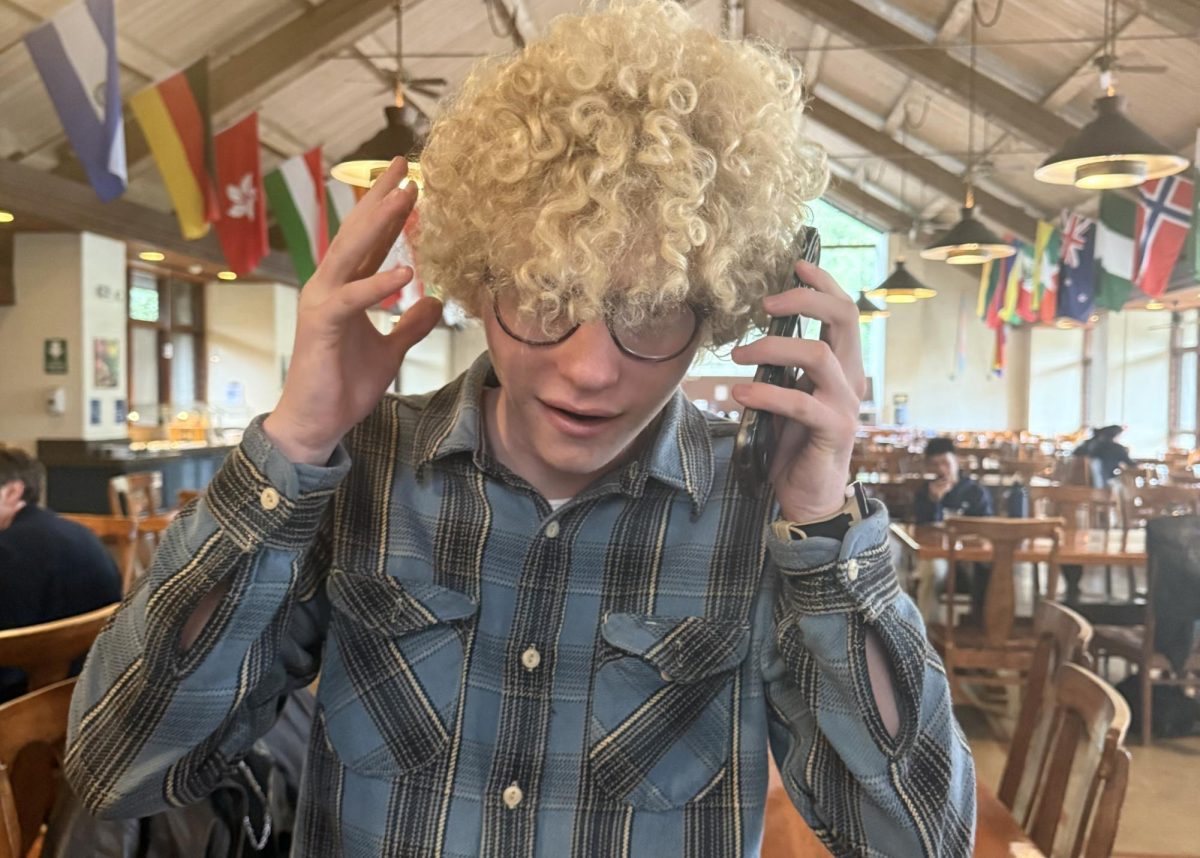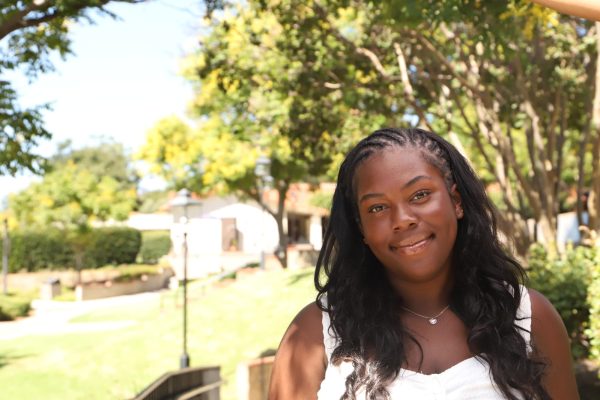As November kicked off, Webb students were invited to take on “Reboot November,” a three-week challenge to ditch their phones for fun rewards. But the stakes got even higher in the final week: if 80% of the student and faculty body gives up their phones for four out of five academic days, the deans will grant the ultimate prize, a “Head’s Day Off” — a no-school day chosen by Dr. Theresa Smith, Head of Schools, sometime in the spring.
The initiative is organized over three weeks. From November 4th to 8th, infographics and posters highlighting teen phone usage appeared in the Price Dining Hall, Stockdale, and bathrooms. The second week, from Sunday, November 10th, to Friday, November 15th, marked the start of the actual phone challenge, where students can earn incentives by participating at least four out of five school days. During the academic day, participants could score 15 dorm points, a Café 1175 drink, or a 7-10 pass, while those giving up their phones from 7:30 to 10:30 PM earned 10 points or similar perks. Now, the third week, November 18th to November 22nd, will feature a community-wide phone challenge with the result of a day off from school.
One of the program’s creators, Sarah Lantz, Dean of Students, shared the intention behind Reboot November, describing it as an opportunity for students to “step back from their screens” and experience a different rhythm to their days. Working alongside Yesela Tadeo, Dean of Residential Life, and Michael Hoe, Assistant Head of School, Dean Lantz helped shape the three-week challenge. When it came to choosing the incentives, Dean Lantz’s Integrated Math II class played a key role, brainstorming ideas for the rewards that would motivate their peers to participate.
“I floated the idea to them one day during class,” Dean Lantz said. “I asked my students what would make other students want to do this, and Lucy Troendle (‘26) said about 15 dorm points and 7-10 passes and cafe drinks for day students, and I was sold!”
The inspiration for Reboot November stemmed from both research and Webb’s unique culture as a boarding school with students who rely on daily screen time for various needs. Dean Lantz emphasized two primary goals: to raise awareness of screen time’s impact and to offer students a chance to experience life without constant phone use.
“This is not about changing policy permanently and to take away student phones just for the sake of taking away phones but instead it’s about helping students understand why certain spaces, like the Dining Hall, are designated as phone-free zones; it’s to build a greater sense of community,” said Dean Lantz.
Reboot November arrives amid growing discussions about screen time’s effects on cognitive function, mental well-being, and social interactions. Dean Lantz explained that the ban on phones in communal spaces like the Dining Hall is about creating intentional moments of connection.
“The idea is to take a break from phones in spaces where we should be connecting face-to-face. I hope students use Reboot November as a way to reflect on the role of screens in their lives,” said Dean Lantz.
Students’ reactions to Reboot November have been mixed, revealing diverse perspectives on the value of going phone-free. A boarder participating in the challenge shared that the primary motivator for her was dorm points, which she hopes will help her secure a single room next year.
“I struggle with morning breakfast check-in, so the points are helpful,” said Natalia Hickox (‘27). “But it’s harder during the academic day –– so much is going on, and I pretty much need my phone.”
Another participant, a day student, decided to join, not for the incentives but to increase her productivity during the day.
“I noticed I was getting more distracted by my phone, especially with studying. I’ve found that without my phone, I’m able to focus better on assignments. It’s refreshing,” said Maddie Leiva (‘27).
Not all students are as eager to join in on Reboot November. Some seniors have chosen not to participate, explaining that there’s no real incentive for them, especially since they won’t need dorm points next year as they are going to graduate.
“I don’t need dorm points since I am a senior, so there’s no reason for me to do it, and 7-10s aren’t that bad,” said Jarra Jallow (‘25).
She also raised concerns about fairness, pointing out that for boarders who rely on breakfast check-ins for points, Reboot November could inflate dorm points for others.
She also doubted whether the challenge actually reduces screen time.
“This challenge is just relocating screentime to other devices; most of my junior friends are just switching to their iPads or watching TikTok on their computers: they’re not reducing screen time, just finding other platforms and doing the same thing they would usually do on their phones,” said Jarra.
Other non-participating students had similar sentiments.
“I rely on my phone to stay in touch and for things like music. It’s not so much an addiction as a practical tool for me,” said Jason Chang (‘27).
While Jason supports the idea behind Reboot November, he suggested that the initiative might need some adjustments to make it more appealing to those who rely on their phones throughout the day.
“I think the initiative is good for those who want to reduce screen time, but for me, it would help if the rewards felt more relevant,” said Jason.
He added that he would be more likely to join if more friends participated, mentioning that group motivation might encourage him to try the challenge next year.
Looking ahead, Dean Lantz hopes to continue the phone-free initiative even after November ends. While the current challenge includes enticing rewards, she envisions a more self-driven version in the future. She hopes boarders will take the opportunity to go phone-free during evening hours or even throughout the academic day, not for points or prizes, but simply for their own well-being.
“I think a lot of students are genuinely curious about life without constant phone access, and extending the challenge after November might let them explore that,” said Dean Lantz.
Whether Reboot November becomes a lasting Webb tradition remains to be seen, but the insights gained from this first experience suggest that unplugging, even briefly, is a challenge worth exploring.
















Ike Mgbeke | Nov 18, 2024 at 12:30 AM
Well detailed article. It clearly educates the reader the reasoning behind Reboot November and the students reaction so far. Very interesting indeed.